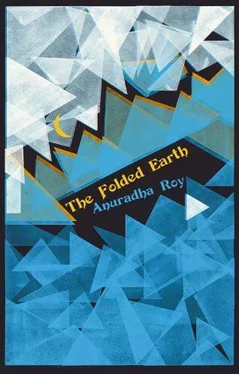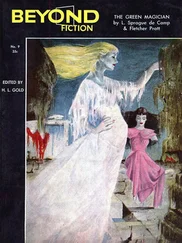* * *
On the morning of Diwan’s Sahib’s yearly performance at our school, a gentle rain fell, dissolving into the foliage before it met the earth. It was a day or two after Rani’s death. Ever since his soaking on the way to the police station, Diwan Sahib had had a cold, and I wondered if he was strong enough to last through an hour of talking and mimicking animal calls when he was breaking into coughs and sneezes every few minutes. It had been decided that Mr Qureshi would drive us there in his car since Diwan Sahib would not be able to walk all the way to the school. Charu had been looking forward to this day, and the ride in a car, but after the death of Rani she had been avoiding us, almost as if we were to blame for not being able to save Puran and the deer, and that morning Ama said: “Charu is not well. She won’t go.”
At the school, the children, in order of class and height, sat on the floor of our Assembly Hall. The hall was blue and white and red with school uniforms and ties. The infants in the front three rows, no more than five or six years old, were my charges. They nudged each other and began to chatter when we entered the room. Two of the daring ones shot out of their places and ran to take my hand in a display of ownership that made Miss Wilson scowl. “Just you look. All this time they were sitting so Diss-iplined ! You appear and immediately there is chaos.”
When the children had been calmed, the microphone tested, a bottle of water and glass procured and Diwan Sahib seated, all eyes turned towards him. The children had bet that he would begin this year with a tiger’s call. Some of them clutched each other’s hands in anticipation of getting a pleasurable fright.
There was silence. A teacher edged the microphone closer to Diwan Sahib. Someone spoke at the back of the room and Miss Wilson rapped out, “ Quay-it ! We are about to begin.” But Diwan Sahib still did not begin. I was worried he might have forgotten why he was there. The children started to fidget. I stepped up to him and whispered: “Start.” He had shrunk into himself since his encounter with the police constable, had barely spoken since then. His shoulders had acquired a hunch, as if he were curling into himself, and his gaze, when it did turn towards me, looked as if it were fixed on something far away. He had not once cracked a joke or even been sarcastic at my expense.
And then he began to speak, but now nobody could hear him. The audio boy came up and adjusted the microphone, which settled down after a minute’s whistling — ”Too loud, too loud,” Miss Wilson had shouted from the front row — and becoming inaudible. Diwan Sahib had carried on speaking, disregarding the microphone. His voice was low and at times he mumbled.
“I don’t know how many in this room live in the bazaar,” he was saying, “how many in villages further away, and how many in the cantonment. How many miles do you walk to come to school? You get up early every morning, at dawn. The older ones among you have to fill water from streams before you do anything else. Some of you have to light fires or help your mothers cook a meal before school. You have to climb up steep hillsides to reach here and you get wet every day of the monsoon during this walk. In the afternoon, you make traffic come to a stop in the bazaar when you come out of the school and stream onto the road, chattering like monkeys — ”
He tried to imitate a langur, but began to cough. He drank a long sip of water and resumed.
“I have looked at your faces when you come out of school — so bright and shining and full of promise — and I have thought each time: What kind of future will you have? What will you do with your education? And what kind of world will I or your teachers leave you?
“In one corner of Ranikhet — how many of you know it? — in one corner, on the way to the Jhoola Devi temple, there is a forest path going off to the side and it leads to a knoll. If you walk down that path to the knoll, you will find a clearing on a spur surrounded by tall trees. In the time of our forefathers, there may have been Himalayan Golden Eagles nesting in those trees and in the rocks. They are rare, majestic birds and have not been seen here in living memory. But even now, those of you who look up at the sky will see eagles over the Golf Course, circling and looking for prey. These are the Steppe Eagles that come here each winter from the deserts of Mongolia and Kazakhstan. I used to sit on the knoll and watch the eagles: they used to roost on those tall trees.”
In earlier times, this would have been Diwan Sahib’s cue for giving the children a thrill; he would have said, “They are big enough to eat little children,” with a smacking of his lips. But today he just said, “They are so powerful that they can kill even foxes, goat kids, fawns of deer. Yet the Steppe Eagle hardly ever calls and as for the Golden Eagle, can you believe it, their call is just a weak yelp, almost like a puppy’s. Grown-up Golden Eagles make a two-syllable ‘ kee-yep ’ sound in a slow, measured series. Their young call with piercing, insistent ‘ ssseeeeeeee-chk ’ or ‘ kikiki ’ notes.”
Diwan Sahib managed both these sounds without coughing, but it was a little while before he recovered from feeling winded and could speak again.
“The spur looks at our peaks of snow,” he said. “And all around the clearing, a long time ago, pilgrims planted poles with prayer flags on them. Maybe not many of you know what a prayer flag is? — well, it wafts prayers that are carried on the wind — and Buddhists had planted these flags, who knows when? They were already in tatters by the time I discovered them. And then I went there often, because if you sat still on that spur, after a while the animals would forget you and come out of the forest — ”
The children sat up, expectant. Now Diwan Sahib would begin imitating each animal that came to the spur. The hall would become a joyful cacophony of squeals and screams of delight.
“But no animal comes to that spur now,” Diwan Sahib said. “There are trucks that come and go, the entrance to the spur is piled high with logs from trees that have been cut from the forests all around. Have you ever heard the sound of a tree being cut with saws — coming apart at the trunk and falling?”
Still he did no imitation, but paused, as if hearing the sound in his head.
“They are building a log cabin on the spur — for the entertainment of bureaucrats. They are building grand wooden gateways out of logs from these old trees. The trees with the eagles were cut down too. Nobody knows where the eagles went when their trees were felled. That is the forest now — it is a park, it is what is called a resource, a factory. It belongs neither to the people who owned it before, nor to the animals and plants that lived in it. I had thought I would tell you how fortunate you were, to live in this part of the world where you are surrounded by rocks that breathe and animals that call to each other. You wanted me to call their calls for you — but I’ve forgotten their voices now. They have no voices any longer. I can’t do this — ” Diwan Sahib pushed his chair back and rose. “I can’t do this any longer,” he said.
He began shuffling to the door. He was in the corridor, coughing and panting for breath, before I could extract myself from where I was sitting, and reach him. There was an air of bemusement in the hall. The children had neither clapped nor moved. A few had been startled into silence and sat looking thoughtful. A boy from the senior section was telling everyone how good Diwan Sahib’s performance had been the year before and what a damp squib it was today. Miss Wilson was furious. “Waste of time … and so many arrangements had to be made!” she protested when the audio-boy came to her saying, “Where to give my bill, Madam?”
Читать дальше












